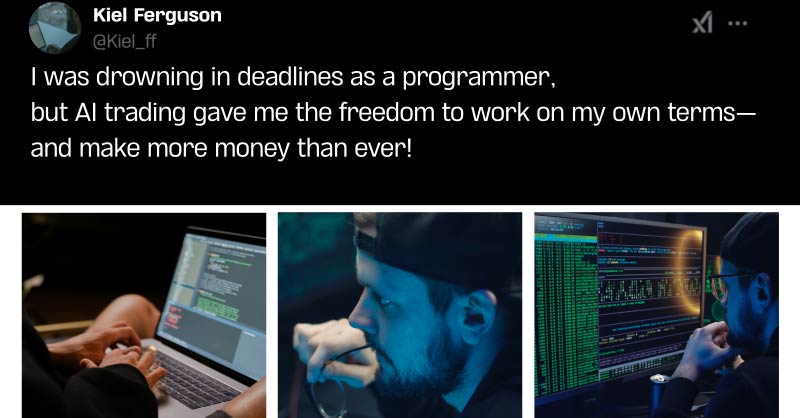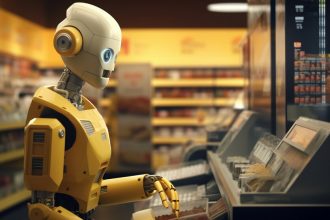
Hi! My name is James, and I had spent over a decade as a software developer, working long hours and constantly feeling the pressure of tight deadlines. While I loved coding, the stress and lack of work-life balance were beginning to take a toll on me. Every day felt like a never-ending cycle of debugging, back-to-back meetings, and late-night coffee-fuelled coding sessions. It wasn’t that I didn’t enjoy my work—I did. But the burnout was real, and I started to wonder if there was another way to use my analytical skills without sacrificing my health and happiness.
One evening, while doom-scrolling through tech forums, I stumbled upon a thread discussing AI-driven trading platforms. I had heard of AI making waves in various industries, but I had never considered its potential in finance. That aroused my professional interest and curiosity, if you know what I mean.) Could a machine really predict market trends and help people make money? It sounded like something straight out of a sci-fi novel, but I decided to dig deeper.
I spent days devouring every piece of information I could find—research papers, online courses, trading strategy discussions. I set up an account on a highly recommended AI trading platform and started with a small investment. At first, I was sceptical.
Financial markets had always seemed like a realm dominated by Wall Street insiders, and here I was, a programmer with zero background in trading, putting my hard-earned savings into the hands of an algorithm. But, I reasoned, if AI could optimize software development, diagnose diseases, and even write poetry, why couldn’t it make smart financial decisions?
With my analytical mindset, I approached AI trading like a coding project. I tested different settings, analysed patterns, and tried to reverse-engineer how the AI made its predictions. To my surprise, I started seeing consistent profits within weeks. The AI didn’t just make random trades—it identified trends, assessed risks, and executed trades with precision. It was like having an ultra-intelligent assistant working around the clock, making data-driven decisions without emotions clouding its judgment.
As my confidence grew, I increased my investments. The numbers kept climbing. The beauty of AI trading was that it eliminated the guesswork. Unlike traditional trading, where emotions and biases often lead to costly mistakes, AI trading relied solely on data. It didn’t panic when the market dipped or get overexcited during an uptrend. It simply followed the logic and executed trades accordingly.
Within a month, I was making enough from trading to match my developer salary. Finally! The realization hit me—this was my escape route. I had spent years dreaming of financial freedom, of having the ability to work on my own terms, and now that dream was within reach. So, I made the bold decision to quit my job.
The moment I handed in my resignation, I felt an overwhelming sense of relief. No more endless meetings. No more last-minute project overhauls. No more sacrificing weekends for tight deadlines. I was finally free to live life on my terms.
But what next? I had all this free time and financial security—how was I going to use it? Instead of just sitting back and watching the AI do its thing, I decided to dive deeper into the world of AI finance. I started experimenting with different AI models, fine-tuning strategies, and even developing my own automated trading bots. It was exhilarating. The thrill of discovery, the satisfaction of problem-solving—it reminded me of why I fell in love with coding in the first place.
Today, I enjoy financial freedom like I never imagined. I spend my days working on passion projects, mentoring young programmers, and travelling the world. And you know what? I’m freaking happy!)
Looking back, I realize that AI trading didn’t just change my financial situation—it changed my perspective on life. It taught me that there are always alternative paths, even in the most unexpected places. Sometimes, all it takes is a little curiosity and the willingness to explore new opportunities.
So, if you’re stuck in a job that drains you, if you feel like you’re caught in an endless cycle of work and stress, know that there are other possibilities out there. You don’t have to be a finance expert to take control of your future. With the right mindset and a bit of risk-taking, you can find your own version of freedom—just like I did.





